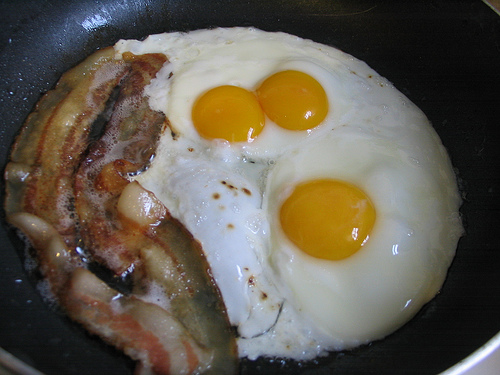Is skipping breakfast bad for you?
Breakfast, it's the most important meal of the day, right? It also seems like the one that many people, myself included, tend to skip the most often. For me, it's a matter of enjoying my time in bed enough that I don't want to get up until I have to.
But I worry about the health effects, if there are any, and whether I'm killing my metabolism by not eating in the morning. Should I be getting up and eating breakfast regularly, or is that more a marketing ploy by the cereal companies to make me buy what they're selling? And what really happens to my body if I don't eat breakfast?
So, in true or false fashion, here are some answers to the basics:
1. Skipping breakfast slows down your metabolism.
FALSE.
Turns out, your metabolism is independent of how much food goes into your body. You'd have to go into starvation mode to really slow down your metabolism, and that would mean like three days without eating. And it makes a lot of sense when you think about it in the other direction. Does your metabolism go up when you eat a lot? That would be a dynamic body.
2. It's just flat out bad for me to skip breakfast.
FALSE.
Turns out, there's very little agreement on this, and researchers seem to find for both sides depending on the specific benefit and the specific study. The one thing everyone seems to agree on is that children and teenagers need to eat breakfast. As if you could keep children away from eating all day.
3. Eating breakfast makes you healthier.
FALSE.
It will make you healthier if you eat healthier foods, like oatmeal, fruit or fiber. If you go grab a jelly donut or take in a huge, greasy bacon, egg, and cheese muffin every morning, that's a different story. "Breakfast" as a meal has the benefits or problems of the food you eat for that "breakfast."
The big thing, in the end, is that if you, like me, don't eat breakfast most of the time, the part that everyone agrees really does have an effect on your health is what you eat when you do get hungry, and how much.
Image courtesy of adria.richards via flickr
